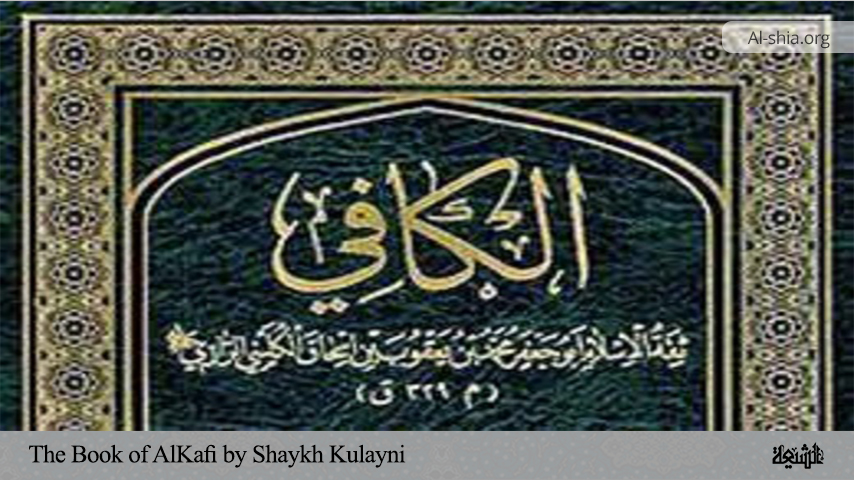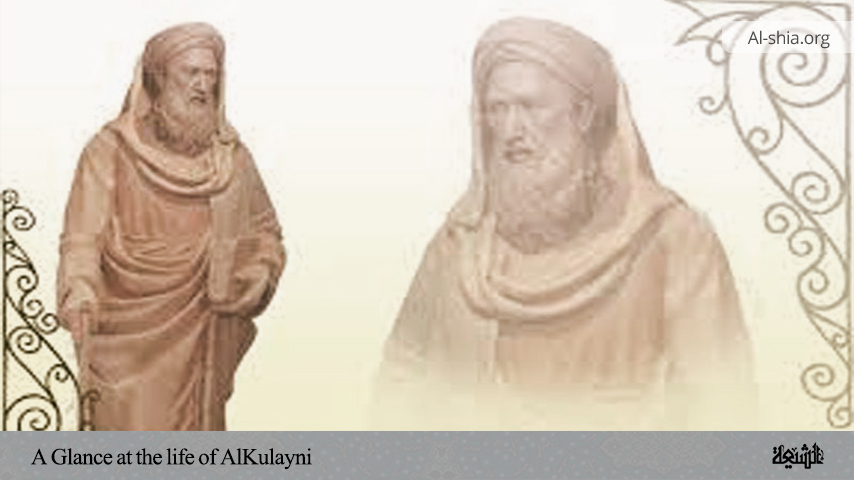Ammar ibn Yasir was one of the earliest converts to Islam and among the early companions of Prophet Muhammad (PBUHH). Ammar was one of the few companions who participated in the first major battle in Islam [the Battle of Badr], despite the extraordinarily harsh conditions at the time. He also participated in all the arduous battles with the Muslims even after the Prophet Muhammad’s death.
His parents were brutally tortured by the polytheists for accepting Islam which resulted in their martyrdom. In addition, Ammar is considered along with Salman, Miqdad, and Abu Dhar to be one of the first partisans of the Commander of the Faithful, Ali ibn Abi Talib (i.e., Shi’atu Ali) even during the lifetime of the Messenger of God, as they recognized his leadership based on divine instruction and refused to pay allegiance to Abu Bakr.
His Birth and Lineage
According to a report, Ammar was born in the tribe of Bani Makhzum during the 570 A.D. and as he has said himself, he was of the same age as the Holy Prophet (PBUHH). His father was Yasir ibn Amir whose lineage goes back to Anas ibn Malik’s family, a Qahtani tribe residing in Yemen. Yasir later moved to the city of Mecca when he was young. He resided there and allied with Abu Hudhayfa from Banu Makhzum. His mother was Sumayyah, the daughter of Khayyat and the slave girl of Abu Huzayfa, the chief of the tribe of Makhzum. Amongst the slave girls of Quraysh, none was as noble-minded, intelligent, kind-hearted, faithful, chaste and pure as she was. Thus these good, devoted and faithful couples were recognized to be the first martyrs of Islam and the pioneers of the caravan of Paradise. Yasir and his pious wife departed for eternal Paradise and chose their abode in the neighbourhood of the ‘Superior Companion’.
During the lifetime of the Prophet
One day, Ammar went to the Holy Prophet (PBUHH) and complained of the torture he had undergone at the hands of the Meccan polytheists, saying: “They did not stop torturing me until I said what they wanted” (That is until he took the names of their gods and talked badly about the Prophet (PBUHH)). The Prophet (PBUHH) asked him, “What do you have in your heart?” He answered, “I am confident in my faith and calm.” The Prophet (PBUHH) told him, “So if they again ask you to say the same, you say so.” The following verse was then revealed to the Prophet (PBUHH) to approve of Ammar’s action: “Whoever renounces faith in Allah after [affirming] his faith —barring someone who is compelled while his heart is at rest in faith” (16:106)
Ammar could not get rid of Abu Jahl except by migrating to Ethiopia. Hence, he joined the second caravan of migrants who were proceeding to that country and lived there peacefully till he came over to Medina along with others after the Holy Prophet migrated to that city.
His virtues
One of the greatest distinctions possessed by Ammar ibn Yasir was that he had been brought up to be a jurist and a scholar. The Messenger of God (PBUHH) himself had trained him in the best manner and had declared him to be the specimen of a ‘Qur’anic Muslim’. On account of these antecedents, his faith in Islam was not merely a blind faith.
Ammar offered prayers facing two Qiblahs [i.e., Jerusalem and Ka’bah] and migrated twice [one to Abyssinia and the other to Medina] and was one of those who took the Allegiance of Riḍwān and participated in the Battles of Badr and Uhud as well as in the Battle of the Ditch. He saw and observed from a close range all the actions of the Messenger of God (PBUHH). He witnessed the Battle of ‘Radda’ [i.e. apostasy] during the reign of Abu Bakr. He was the Governor of Kufa during the time of Umar and one of the opponents of Uthman. Ammar is one of those companions who have been recognized to be the sources of knowledge and hadith, and Ibn Abbas, Abu Musa Ash’ari, Abdullah ibn Ja’far, Abul As Khuza’i, Abu Tufayl and others have narrated the Prophetic hadiths from him.
There are several sayings of the Prophet (PBUHH) on the virtues of Ammar. For instance, The Prophet was reported to have said: “Ammar is with the truth and the truth is with Ammar. Ammar turns around the truth wherever it is and the murderer of Ammar is in the fire.” And then he (PBUHH) also said: “When people engage in disputes, the truth is with the son of Sumayyah.”
His loyalty to Imam Ali
After the death of Prophet Muhammad (PBUHH), Ammar remained loyal to Imam Ali. Muslims consider Ammar’s ultimate fate to be unique among the fates of the Prophet’s companions, for they perceive his death at the Battle of Siffin as the decisive distinguisher between the righteous group and the sinful one.
In the period of ‘Umar ibn al-Khattab, he was appointed as the ruler of Kufa and the commander of the Muslim army there. The Battle of Nahawand occurred during his commandership. In this battle, some areas of Iran were conquered. However, he was ousted from his position after a while.
After the death of Umar ibn Khattab and the constitution of the Six-Member Council to select the Caliph, Ammar talked with Abd al-Rahman ibn ‘Awf and recommended him to choose Imam Ali as the Caliph to prevent divisions among people. Similarly, after the murder of Uthman ibn Affan, Ammar was one of the people who invited others to pledge their oath of allegiance to Hazrat Ali.
In the period of the third Caliph, serious quarrels happened between him and Ammar. In one such case, Ammar protested the exile of Abu Dhar to Rabadha. It led to a serious quarrel between ‘Ammar and ‘Uthman.
According to a report, Uthman on an occasion ordered his slaves to beat Ammar and he was beaten so much that he suffered from a hernia and became senseless. Thereafter, he was raised from the ground and thrown into the street like a refuse.
After this incident, Ummu Salma came to know about all the hue and cry and came up to Ammar. When she found him in a state of coma, she directed to take him to her house and kept lying in this condition and as a result, his noon, afternoon and dusk prayers lapsed. However, as soon as he regained his consciousness, he praised and thanked Allah and offered them. Uthman intended to exile Ammar from Medina, but he changed his mind after protests by Banu Makhzum and Imam Ali (PBUH).
In the reign of the Commander of the Faithful, Ali ibn Abi Talib (PBUH), Ammar ibn Yasir was an advocate of Imam Ali and he participated in the battles of Jamal and Siffin. In the Battle of Jamal, he was the commander of the left army of Imam Ali and he became the commander of Imam Ali’s army on the third day of the Battle of Siffin.
His Martyrdom
It is pertinent to mention at this juncture that all that the Prophet (PBUHH) had predicted about Ammar had happened except his martyrdom at the hands of a rebellious group. Now Ammar was awaiting this very prophecy of the Messenger of God. Of course, after having passed ninety years of his age, what else could he think of and what other thing could he desire to have?
Now dreadful disturbances had taken place and Ammar had been recognized by the people as the sign of truth and the mark of guidance and now truth in the eyes of Ammar meant Ali.
The martyrdom of Ammar in the Battle of Siffin by the army of Mu’awiya ibn Abi Sufyan was considered a factor to reproach people and prove the rightness of Imam Ali (PBUH) in the battle. It was because of a well-known hadith from the Prophet (PBUHH) according to which Ammar’s killers are referred to as rebels or transgressors. This distinction was peculiar to Ammar ibn Yasir, to such an extent that he was recognized to be the sign of guidance. If someone fought side by side with him and lost his life, he was sure that he would go to Paradise, and conversely whoever fought against him and was killed was sure to go to Hell. This is because the martyrdom of Ammar made the Muslims know the right front during that bitter war.
Ammar was buried where he was martyred which is located today in the Raqqa Province in Syria. However, on 21 Ramadan, 1434 AH (corresponding to July 29, 2013, Takfiri groups in Syria who had taken control of Raqqa Province, demolished the tomb of Ammar ibn Yasir and Uways al-Qarani. The destruction of his shrine was condemned by Muslims and sparked outrage in various parts of the Muslim world. Nowadays, when Muslims visit that area, they can see the big shrine of that great companion, who spent all his life striving for the preservation of pristine Islam.







We are a bunch of volunteers and starting a new scheme in our community.
Your website provided us with useful information to work on. You have
performed a formidable task and our entire group will probably be grateful
to you.
Thanks so much. We are delighted to hear from you.